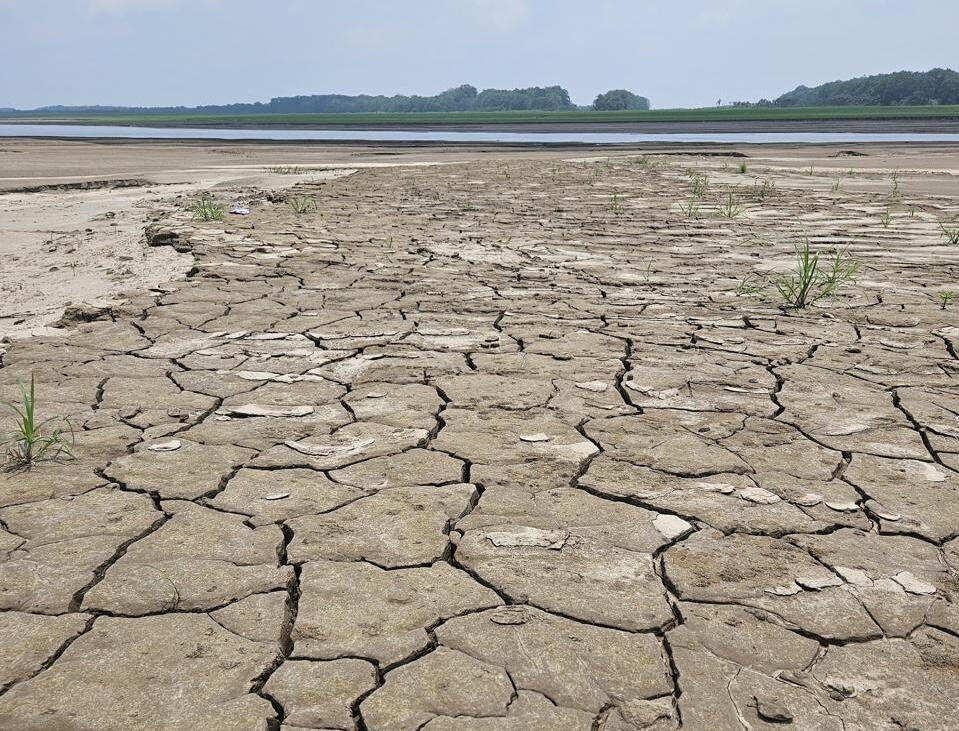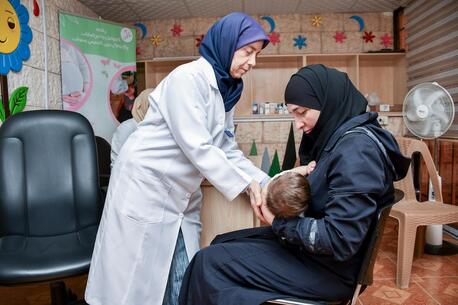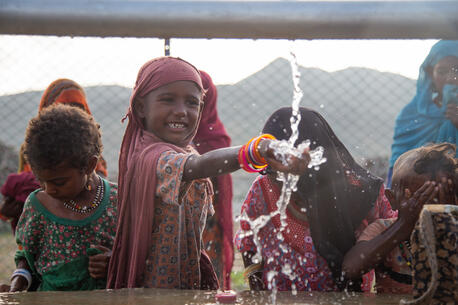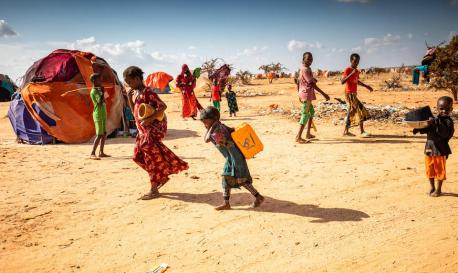UNICEF Brings Relief to Children Caught in Amazon Drought
The ongoing emergency response includes distributing safe water and other essential supplies, mobilizing health brigades and strengthening the resilience of community-based systems and local public services in affected indigenous communities.
UNICEF is working with partners to provide relief to hundreds of thousands of children in Brazil, Colombia and Peru suffering the effects of severe drought along the Amazon River.
The climate change-driven drought, which began in 2023, is the worst to hit the region in the last century. It has left Amazon basin rivers at an all-time low, with no improvement expected anytime soon. Several tributaries have completely dried up, Emergency Manager with UNICEF Antonio Marro told CBS News.
Water scarcity in the region has reached dangerous levels. Essential services, including health, education and child protection as well as agriculture and fishing livelihoods have been severely disrupted, putting lives at risk.

Hundreds of thousands of children in Brazil, Colombia and Peru are cut off from education, food supplies and other critical services
More than 420,000 children are affected across the three countries, mainly in riverine and indigenous communities where families rely on the rivers for transport and access to food, water, fuel and basic medical supplies. The rivers are also the way children travel to get to school.
“For centuries the Amazon has been home to precious natural resources; we are witnessing the devastation of an essential ecosystem that families rely on,” said UNICEF Executive Director Catherine Russell. “We must mitigate the effects of extreme climate crises to protect children today and future generations. The health of the Amazon affects the health of us all.”
The largest, most diverse tropical rainforest on Earth, the Amazon spans nine countries in South America. In Brazil’s Amazon region alone, more than 1,700 schools and over 760 health centers have either been shuttered or become inaccessible due to low water levels.
In the Colombian Amazon, river water levels have dropped by up to 80 percent, restricting access to drinking water and food supplies, and leading to the suspension of in-person classes for children at more than 130 schools. In turn, this has increased children's risk of recruitment, use and exploitation by non-state armed groups, and has also led to increased respiratory infections, diarrheal diseases, malaria and acute malnutrition among children under age 5.
In Peru, remote communities in the northeastern Loreto region, most of them indigenous and already vulnerable, are most affected. More than 50 health care centers have become inaccessible. Wildfires — which spread quickly in a drought — are also causing unprecedented devastation and biodiversity loss and increasing air pollution.
Food insecurity caused by drought increases the risk of malnutrition, stunting and wasting. Poor access to safe water heightens risks of infectious disease. For pregnant women, drought carries a higher risk of delivering children with lower birth weights.
UNICEF is appealing for support from donors to help address urgent needs. Emergency relief efforts include distributing safe water and other essential supplies, mobilizing health brigades and strengthening the resilience of community-based systems and local public services in affected indigenous communities.
UNICEF also continues to advocate for the wider global community to commit to significant increases in climate financing to better support children bearing the brunt of climate impacts like severe drought.
Climate change-related disasters continue to increase in intensity and frequency throughout Latin America and the Caribbean, disproportionately affecting the most vulnerable populations. Help UNICEF deliver emergency relief and help communities reduce their disaster risks and build resilience. Donate today.
HOW TO HELP
There are many ways to make a difference
War, famine, poverty, natural disasters — threats to the world's children keep coming. But UNICEF won't stop working to keep children healthy and safe.
UNICEF works in over 190 countries and territories — more places than any other children's organization. UNICEF has the world's largest humanitarian warehouse and, when disaster strikes, can get supplies almost anywhere within 72 hours. Constantly innovating, always advocating for a better world for children, UNICEF works to ensure that every child can grow up healthy, educated, protected and respected.
Would you like to help give all children the opportunity to reach their full potential? There are many ways to get involved.





